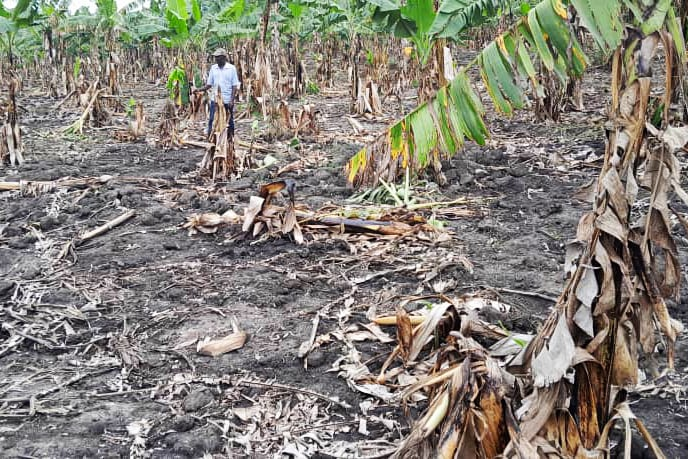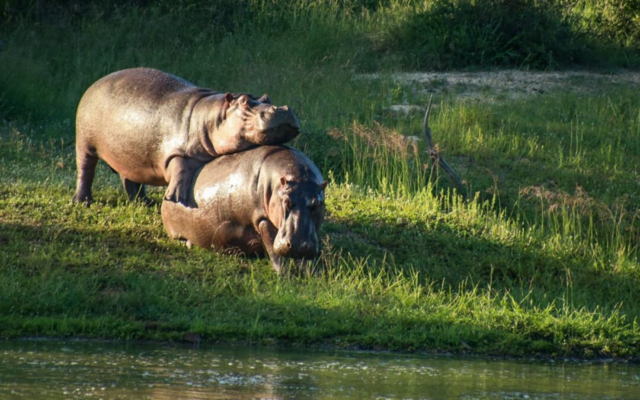
Joyce Namugambe
Residents in Rakai district appeals to the government through the ministry of tourism, wild life and antiquities to help them address the issue of the Hippopotamus, that invade their homes, gardens and farms which threaten their lives as well destroying crops and killing livestock on their farms that affecting their harvest and incomes in the long run.
These residents living around the areas of Lake Kacheera express concern over the stray Hippos destroy their crops and living others helpless.
The residents therefore asked government to put boundary demarcation stopping hippopotamus from straying into their homes farms and gardens.
For several years, stray hippos have attacked communities in Kagamba, Kacheera and Ddwaniro sub-counties in Rakai District killing people, livestock and also destroy crops including sweet potato, maize, ground nuts, beans, cassava, banana plantations.
Farmers note that in the past one month, eight animals, five cows and three pigs were killed with crops also being destroyed by the Hippos, mostly from villages of Katenga, Katete, Kyigando, Kabumba, Byakyishana and Katerengyeza.
One of the residents in Bakyishana village, Miriam Tushemerairwe noted that they can no longer send children to schools and wells for studies and fetch water safely because of fear of the Hippos to harm them.
She adds that the destruction of their crops greatly affects their income and will cause hunger among them and they can no longer raise money to pay for their children’s school fees.
Another resident of the same village Herbert Tayebwa showed concern over the fear of the Hippos which has scared residents from keeping domestic animals mentioning that he has lost his cattle to the Hippos.
The Chairperson of Kacheera Sub county Robert Tukwatanise cried out to the government to urgently intervene in the matter to prevent the starvation that may be caused by continous destruction of crops by the Hippos.
Additionally, he appealed to government to revise its tourism policy and consider compensating residents for the losses caused by the wild animals.
The communications manager at the Uganda wildlife Authority Bashir Hangi advised residents that in the meantime, they should avoid using the areas around the lake since Hippos occupy them while nursing their young ones, as they wait for the government’s response.
He challenged them to take examples of the farmers who live around Lake Katwe and Queen Elizabeth National park who have adopted living peacefully with wild animals through adopting such measures.
It should be remembered that Hippos have caused tragic incidents that have scared people’s lives and plantations, such as the 2011 incident where Hippos hit a boat and four people including a toddler drowned in the water at Lake Kijanebolora.
In 2013, five people were killed by Hippos in Lyantonde district including three children and two adults. And for several years now, Hippos have caused damages in Kagamba, Kacheera and Dwaniro subcounties in Rwakai district.
This has greatly led to loss of lives, livestock, crop damage resulting into food scarcity and poverty among people in the affected areas.






